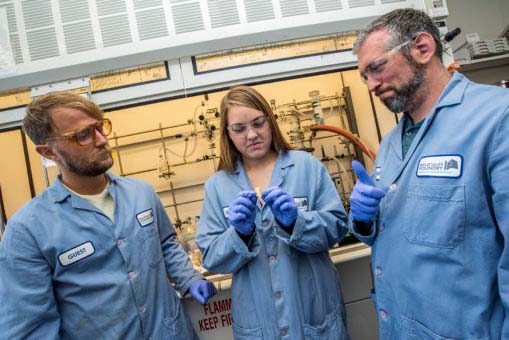
It has been called poly (diketoenamine), or PDK, and it promises to change the world of plastic completely. Like a Lego playset, the new recyclable plastic can be disassembled into its constituent parts at the molecular level and then reassembled into a different shape, texture, and colour again and again, without loss of performance or quality. The breakthrough discovery has been carried out by a team of researchers at the U.S. Department of Energy’s (DOE) Lawrence Berkeley National Laboratory (Berkeley Lab), as reported in the journal “Nature Chemistry”.
At the moment, the problem with many plastics is that the chemicals added to make them useful – such as fillers that make a plastic tough, or plasticizers that make a plastic flexible – are tightly bound to the monomers and stay in the plastic even after it’s been processed at a recycling plant. When plastics with different chemical compositions are melted together it’s hard to predict which properties the resulting material will inherit from the original plastics.
Unlike conventional plastics, the monomers of PDK plastic could be recovered and freed from any compounded additives simply by dunking the material in a highly acidic solution. The recovered PDK monomers can be remade into polymers, and those recycled polymers can form new plastic materials without inheriting the color or other features of the original material.
The researchers are now planning to develop PDK plastics with a wide range of thermal and mechanical properties for applications as diverse as textiles, 3D printing, and foams. In addition, they are looking to expand the formulations by incorporating plant-based materials and other sustainable sources.

Credit: Marilyn Chung/Berkeley Lab



